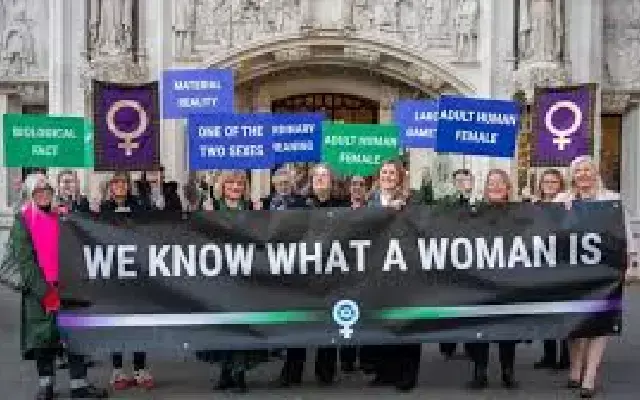
Supreme Court to Rule on Definition of a Woman in UK
The Supreme Court of the United Kingdom is set to make a landmark decision next week, which could have far-reaching implications for the country’s sex-based rights and gender recognition laws. The case involves a challenge by For Women Scotland, a group that argues that the legal definition of a woman should only apply to those who were born female, excluding transgender individuals who have undergone gender transition.
The dispute centers around the Scottish government’s policy of including transgender people with a gender recognition certificate in the definition of a woman. This has led to concerns among some groups that the government’s approach is eroding the rights and protections afforded to women under the Equality Act.
For Women Scotland, which is backed by several other feminist organizations, claims that the Scottish government’s policy is a threat to women’s rights and has been responsible for a significant increase in sexual violence and harassment against women. The group argues that the government’s approach is not only legally flawed but also morally wrong, as it prioritizes the desires of a small minority of transgender individuals over the rights and safety of women.
The Scottish government, on the other hand, has argued that its policy is necessary to ensure that transgender individuals are treated with dignity and respect and that they are able to access the services and protections they need without fear of discrimination. The government has also pointed out that the law already recognizes that gender is not a binary concept and that individuals should be able to identify as male, female, or non-binary.
The case has sparked intense debate and controversy, with many people on both sides of the issue passionately arguing for their perspective. The Supreme Court’s decision is expected to be closely watched and could have significant implications for the future of sex-based rights and gender recognition laws in the UK.
The Equality Act, which was passed in 2010, prohibits discrimination against individuals on the basis of their gender and requires employers, service providers, and other organizations to take steps to prevent discrimination and promote equality. The Act also provides for sex-based rights, including the right to be protected from sexual harassment and assault.
However, the Act’s definition of gender is not explicitly binary, and the law has been interpreted in different ways by different courts and tribunals. The Scottish government’s policy has been seen by some as an attempt to clarify the law and ensure that transgender individuals are protected from discrimination, while others have argued that it is an attempt to undermine women’s rights and protections.
The case has also raised questions about the relationship between gender and biology, with some arguing that gender is a social construct and that individuals should be able to identify as male, female, or non-binary regardless of their biological sex. Others have argued that gender is closely tied to biology and that individuals should be recognized as male or female based on their biology, regardless of their gender identity.
The Supreme Court’s decision is expected to be based on a careful consideration of the evidence and arguments presented in the case. The court will likely consider the legal and policy implications of the government’s approach and the potential impact on women’s rights and protections.
The decision could also have implications for the way in which gender is recognized and protected in other areas of life, such as education, employment, and healthcare. It could also have implications for the way in which gender is represented and portrayed in media and popular culture.
In conclusion, the Supreme Court’s decision on the definition of a woman in the UK is a significant and complex issue that has important implications for the country’s sex-based rights and gender recognition laws. The decision is expected to be closely watched and could have far-reaching implications for the future of gender identity and expression in the UK.






